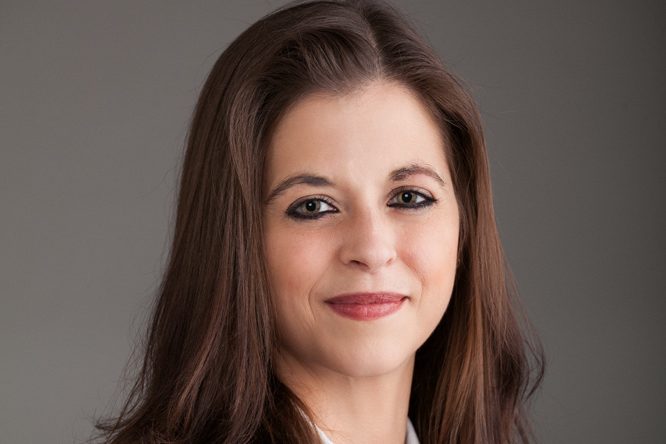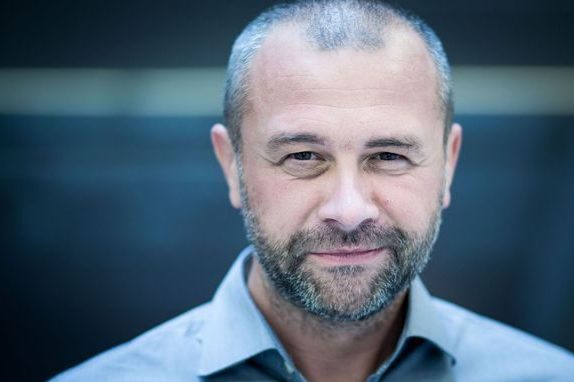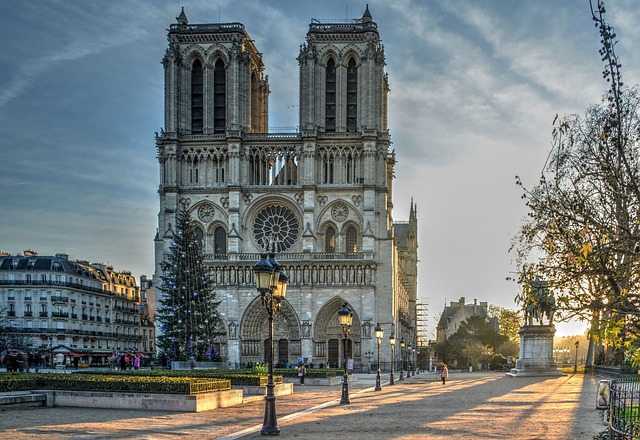
Expert View: Why we need to speak up about donor dominance
May 15, 2019
Your Voice: Taking on the mantle of strengthening civil society leadership
May 15, 2019Fundraising for the restoration of the Notre Dame cathedral in Paris raised over €1 billion in just two days following the devastating fire, but critics argued that this money could have been put to better use. Fundraising Europe interviews Yaële Aferiat, Director of the French Fundraisers Association and Global Leader of Giving Tuesday in France.
In the immediate aftermath of the fire, funds poured in with hundreds of campaigns set up on crowdfunding sites GoFundMe and JustGiving, as well as €500m from the three billionaire families that own France’s giant luxury goods empires: Kering, LVMH and L’Oreal. French energy company Total has also given €100m. French president Emmanuel Macron pledged that Notre Dame would be rebuilt within five years and that French people would pull together to repair their national symbol.
But many commentators argued that there were more pressing concerns than the restoration of a cathedral, such as devastation to the planet and destruction of species. France’s Gilet Jaune movement also criticised the fact that so much money had been donated to restore the landmark, when in comparison little was being done to address the needs of low paid workers in the country.

Yaële Aferiat, French Fundraisers Association
[Fundraising Europe] Why were philanthropists so quick to rally round to provide funding to rebuild Notre Dame?
[Yaële Aferiat] For French philanthropists, as for donors all over the world, we believe this fire was a ‘one of a kind’ catastrophe. It’s not another earthquake, flood or outbreak of disease. There is no déjà-vu, no donor fatigue. It’s a cathedral. One that has been standing as a symbol of Paris, of France, of the ability of men to build great and lasting monuments, for 800 years. And here it was going down in flames live on TV, showing the world – in real time – some horrifically beautiful images, with a very strong symbolism: the cathedral; the image of good, of God, of heaven, being attacked by a fire; the image of evil and hell. When a catastrophe happens, a natural human response is to ask what can be done and, as is often the case, giving was the answer.
As President Emmanuel Macron said during the evening of the fire “we will rebuild it”. Seeing the drama, everyone watching knew it would be an incredibly expensive task for a colossal piece of heritage that you can’t put a value on. The gifts of philanthropists were as high as the task in sight and the emotion of that night, maybe with a little dose of ego, but certainly also with a sense of historical responsibility. After all, throughout the centuries, philanthropists have helped finance cathedrals.
Why did this attract so much criticism from the public?
There are a number of reasons. First, the speed and the importance of the philanthropic response – 600 millions euros in one night – is unheard of in France where philanthropists tend to be very discreet. People wondered: if they can do it for Notre Dame, why not end homelessness or another social need? They understood that philanthropists have the resources and ability to support urgent causes, but choose not to. After weeks and weeks of Yellow Vests movement and a national debate on inequality, it was not well received.
The Abbé Pierre Foundation, helping people in need find decent housing, was the first to tweet about this, saying: “well done to our philanthropist[s] for Notre Dame, but maybe you could give a fraction to help us?”
This opens the interesting but controversial topic of whether there is a hierarchy amongst causes. There is also the concern that these very large gifts can also make the average person feel a little irrelevant. What will my 10 euros gift accomplish in comparison? Many questions were raised about the fiscal deductibility of those big gifts. After all philanthropists were getting the glory without paying the full price as gifts are supposedly deductible at 66% from your taxes. This led François Pinault and Bernard Arnault to publicly announce that they were not going to claim the deduction. This was a first in France.
Are we ready for major donor philanthropy in France ?
All those controversies show that we still struggle a bit with the way we welcome major donors in our country. Here, the catholic tradition of “Good doesn’t make noise, and noise doesn’t do any good” is still very strongly embedded in people’s beliefs. People who have money – enough to part with major gifts – are often greeted with suspicion. Have they earned it fair and square? Do they pay their taxes?
In that context, capital campaigns developed rather recently here and we still have to build a real philanthropic culture. Explaining more and better, to the media, to state representatives, to the general public, and maybe to some non profit organisations who are not trying to attract big gifts. This means bringing more philanthropists to explain who they are and why they are doing it. To show the impact of their philanthropic actions. The Notre Dame fire could really be a wake up call for our sector.
What does this tell us about what donors are looking for from their philanthropic choices? What can fundraisers learn from this?
Was donating to rebuild Notre Dame really a philanthropic choice? It cannot be compared to a well thought out direction for a specific foundation or social need. Maybe the real lesson here is that, in our era of live information and social networks, anything can become an emergency, raising crazy amounts of money in a few hours. This used to be the traditional field of humanitarian charities. They are prepared for it.
Of course, the Fondation du Patrimoine (french cultural heritage foundation), who raises funds for the conservation of old churches, fountains or bridges all around France, never saw this coming. Many campaigns – some honest and some fraudulent ones too – were launched anonymously on crowdfunding websites all around the world in the hour following the beginning of the fire. However, the foundation was not able to announce the launch of their official fundraising campaign until late that evening, saying it would open the following morning. Their website crashed for hours and they probably missed a lot of donations in that time. You cannot ask people who sit feeling helpless and watching a catastrophe unfold to delay their gift.
About Yaële Aferiat
Yaële is director of the French Fundraisers Association (AFF) and Global Leader of Giving Tuesday in France. She is dedicated towards development of the fundraising profession and inspiring a culture of philanthropy in France.




